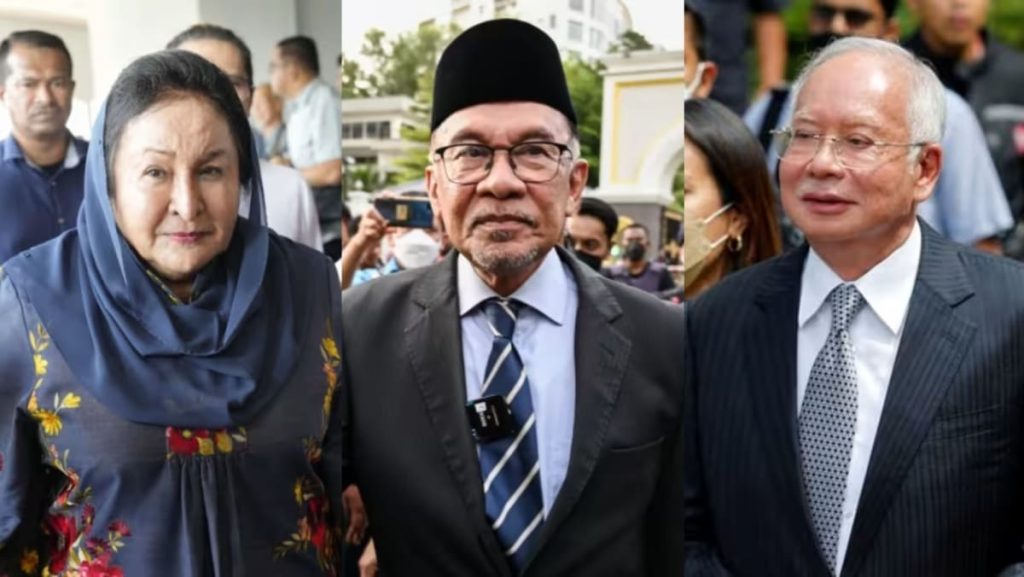The Complexities of Justice and Political Retribution in Malaysia: The Case of Anwar Ibrahim and Beyond
The Malaysian political landscape has long been characterized by a complex interplay of power struggles, accusations of corruption, and legal battles often perceived as politically motivated. Anwar Ibrahim, a prominent figure in Malaysian politics, has personally experienced the sharp edge of this system, having been jailed twice on charges he vehemently maintains were fabricated by political adversaries. His narrative of victimization resonates deeply within a society still grappling with the legacy of authoritarianism. However, Anwar’s own ascent to power in 2022 has brought a new dimension to this ongoing saga, raising critical questions about the thin line between pursuing justice and wielding it as a political weapon. The recent legal proceedings against several high-profile figures, including Syed Saddiq, Mahathir Mohamad, and the late Daim Zainuddin, have intensified scrutiny on Anwar’s administration and sparked debate about whether the pursuit of accountability is being compromised by political expediency.
Anwar’s own experiences have shaped his perspective on the Malaysian justice system. He has consistently maintained that the charges against him were politically motivated, designed to silence dissent and marginalize him from the political arena. This narrative of victimization has resonated with many Malaysians who perceive the legal system as susceptible to political manipulation. However, Anwar’s rise to power has placed him in a unique position, prompting a reassessment of his past claims and a closer examination of the actions taken by his administration against political rivals. The question now arises: Is Anwar genuinely committed to upholding the principles of justice and due process, or is he replicating the same tactics he once condemned?
The case of Syed Saddiq, the former Minister of Youth and Sports, has become a focal point in this debate. Sentenced to seven years in jail and a hefty fine for criminal breach of trust and money laundering, Syed maintains his innocence and claims his prosecution was politically motivated. The severity of his sentence, compared to other corruption cases, has raised eyebrows and fueled suspicions of political interference. Justice Azhar Abdul Hamid’s justification for the harsh sentence, citing Syed’s status as a public figure and role model, has further intensified concerns about the potential for politically motivated prosecutions. Syed’s case has become emblematic of a broader generational divide in Malaysian politics, pitting youthful idealism against the entrenched interests of the older political elite.
The legal battles involving Mahathir Mohamad, a former Prime Minister, and his finance minister, the late Daim Zainuddin, add another layer of complexity to this narrative. Both figures, once considered pillars of the Malaysian political establishment, have faced accusations of corruption and abuse of power. These cases highlight the shifting alliances and often retaliatory nature of Malaysian politics. The accusations against these powerful figures raise questions about the extent to which political vengeance might be driving the pursuit of justice. Are these prosecutions genuine attempts to hold individuals accountable, or are they politically motivated maneuvers designed to weaken opposition and consolidate power?
The central question surrounding these cases is whether they represent a genuine effort to combat corruption and uphold the rule of law, or whether they are being pursued with "venom and enmity," as Anwar himself described his own prosecutions. The concerns raised by these cases go beyond the individuals involved; they touch upon the very foundations of Malaysia’s democracy and its commitment to due process. The perception of politically motivated prosecutions can erode public trust in the justice system and create a chilling effect on political participation, particularly among younger generations who may be deterred from entering politics for fear of becoming entangled in politically charged legal battles.
The unfolding legal battles in Malaysia represent a crucial test for Anwar’s administration. Will he demonstrate a commitment to upholding the principles of justice and due process, even when it involves his political opponents? Or will his administration succumb to the same temptations of political vengeance that he has so vocally condemned? The answer to this question will not only determine the fate of the individuals involved but also shape the future of Malaysian democracy and its ability to address the complex issue of corruption without compromising the fundamental principles of fairness and impartiality. The world watches as Malaysia navigates this delicate balance between political expediency and the pursuit of justice.

